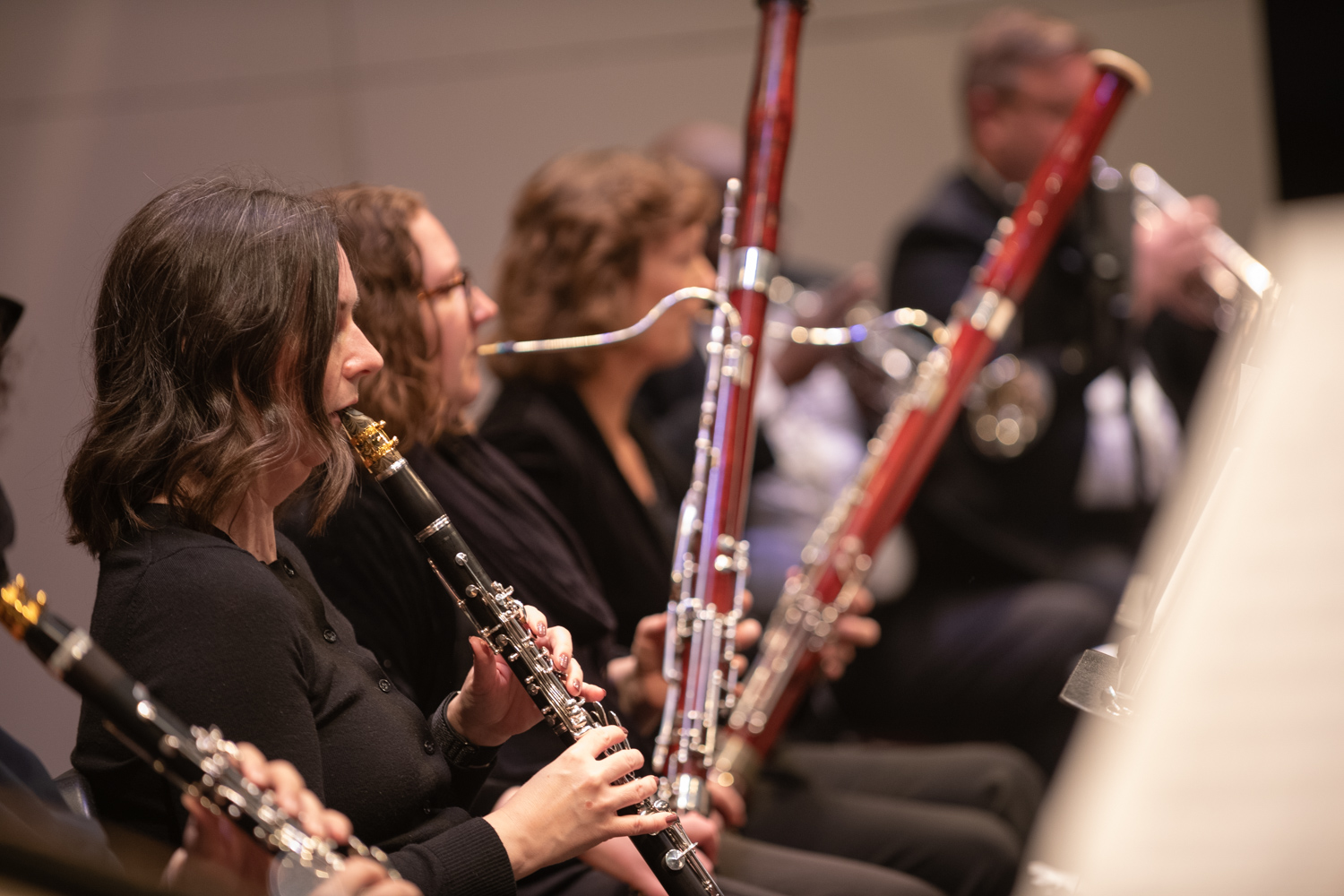We are grateful for the continued support by our patrons and donors
Support the Symphony
In 1894, psychologist Havelock Ellis asserted in his study titled Man & Woman that women were less likely to have success as composers because genius manifested more naturally in men[1]. Of course, now, we know that this is far from true. Female composers are both accepted and successful in the world of classical music today, but that has not always been the case. Contrary to the once long-standing opinion that women had little to no involvement in the composition of classical music, they have, in fact, been composing and contributing to the genre dating back to its roots. Matthew Johnson writes in “The Recognition of Female Composers” that the ignorance of the existence of work by female composers has always been due to a lack of awareness, not a lack of presence[2].
As we commence our 35th anniversary season, “The Universal Language,” we hope to spotlight the work of composers that speak to the theme of connecting people through the universal language of music. The inclusion of Joan Tower’s Fanfare for the Uncommon Woman No. 6 in our first Masterworks concert of the 2022-2023 season is a distinctly pointed nod to the contributions women have gifted to the classical music genre in terms of composing. Tower has been a trailblazer for female composers for decades; she has won countless awards for her compositions, including the prestigious Grawemeyer Award and multiple Grammy awards, and regularly teaches the future generation of composers at Bard University. Being an icon for the women in the world of classical music, Tower has naturally been approached by many people regarding her craft, her process, and her thoughts on women in the classical music genre. As pointed out by Elizabeth McGuire, executive director for the Colorado Music Festival, Tower is known for “embracing the female perspective” in her work, and contributes part of this perspective to deeply knowing the history of female composers[3].
Her Fanfares for the Uncommon Woman were composed almost as though a counterpart to Aaron Copland’s Fanfare for the Common Man, and have become situated as staples in the repertoire of many symphony orchestras across the world[4]. There are six in total, and each are dedicated to important female music figures; in her own words, Tower describes them as being written for “women who take risks and are adventurous”.[5] No. 6, commissioned by the Baltimore Symphony for orchestra in 2014, is said to be dedicated to Tania Leon, a highly honored, female, Cuban-American composer.[6]
Now, at 84 years old, Tower’s influence on both composition and classical music is solidified into the history of the genre itself. In a narrative that once omitted all existence of female influence, she has and will continue to make her presence known for the generations to come. As Alex Ross, contributor for The New Yorker, wrote, “No concert series would suffer a loss of quality if more of [women’s] work was included. To the contrary, any institution that made a habit of spotlighting women would, by default, become a livelier place”.[7]
References:
[1] Eugene Gates, “Why Have There Been No Great Women Composers? Psychological Theories, Past and Present,” Journal of Aesthetic Education 28, no. 2 (1994): 27–34.
[2] Matthew S. Johnson, “The Recognition of Female Composers,” Ágora, (2005): 9.
[3] “Elizabeth McGuire Interviews Composer Joan Tower,” Colorado Music Festival, October 27, 2020, https://coloradomusicfestival.org/elizabeth-mcguire-interviews-composer-joan-tower/.
[4] Henry Michaels, “Program Note – Joan Tower’s Fanfare for the Uncommon Woman,” Resonance (blog), Music Academy, August 7, 2021, https://musicacademy.org/resonance-08-07-2021-tower/.
[5] Michaels, “Program Note – Joan Tower’s Fanfare for the Uncommon Woman.”
[6]"Fare for the Uncommon Woman," Your Classical, October 10, 2019, https://www.loc.gov/static/programs/national-recording-preservation-board/documents/FanfaresForTheUncommonWoman.pdf.
[7] Alex Ross, “Even the Score,” The New Yorker, April 22, 2103, https://www.newyorker.com/magazine/2013/04/29/even-the-score.